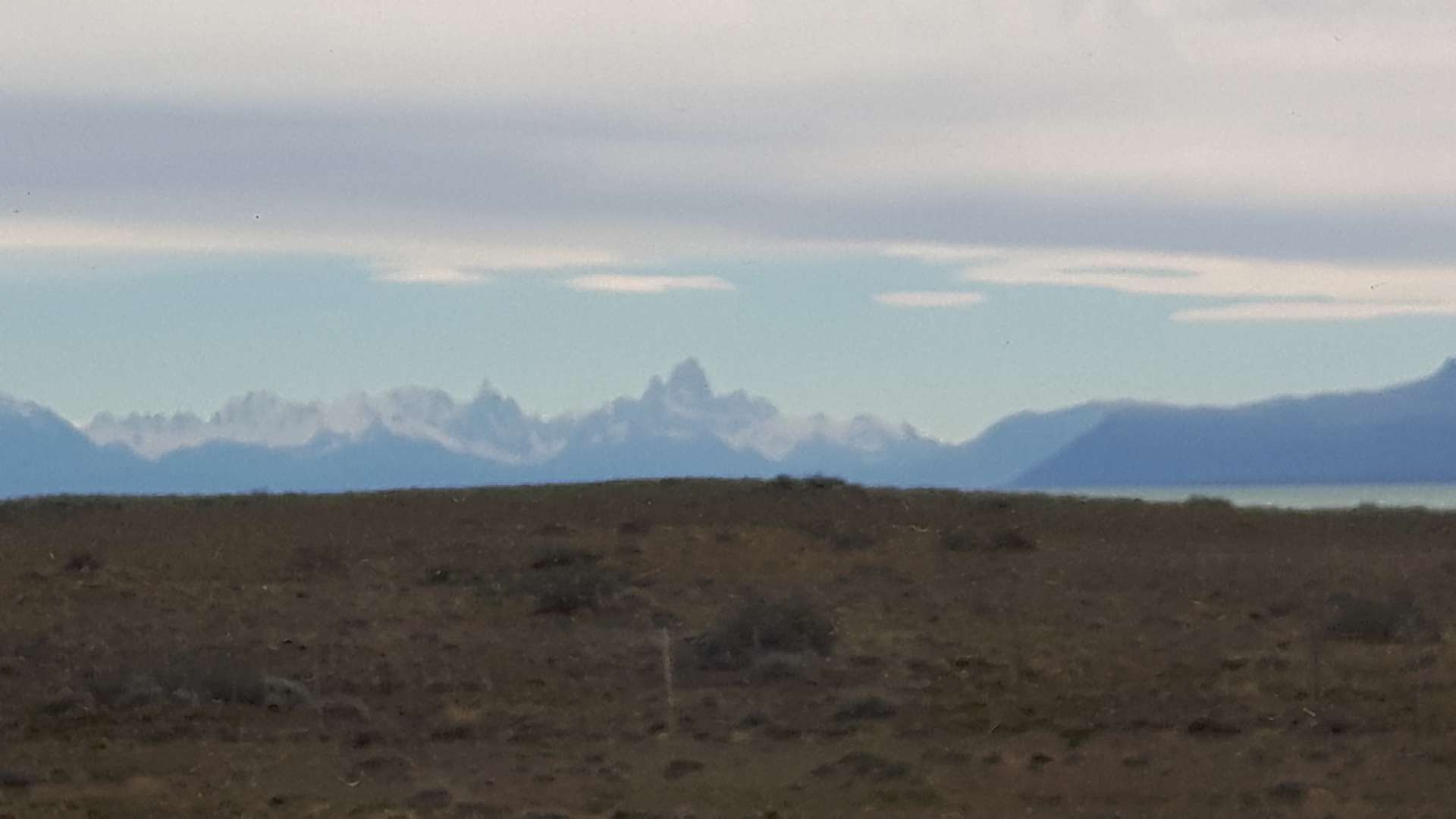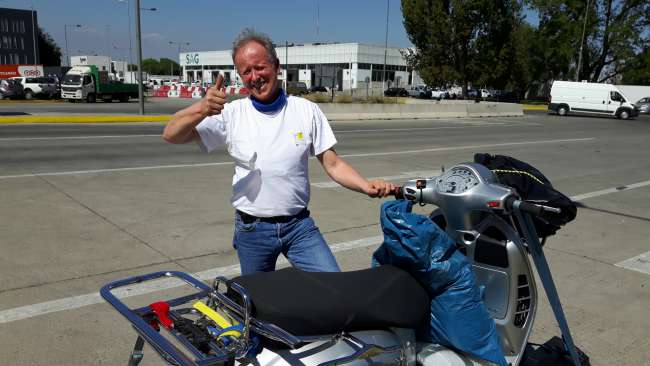
2017 VespamerikasuR 2019
vakantio.de/vespaamerikasur
ab 10.09.: Quito - 2,850 m - 22 km south of the equator
Wɔatintim: 11.09.2017
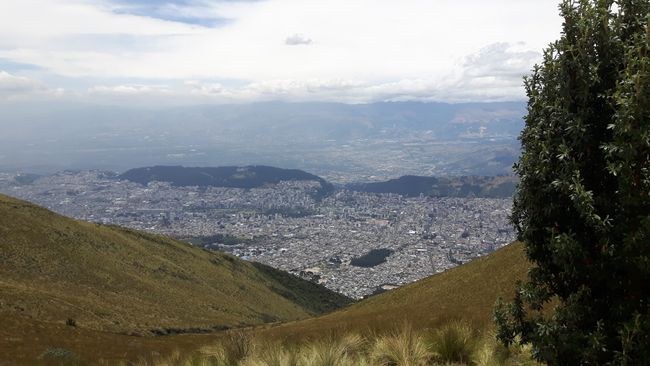
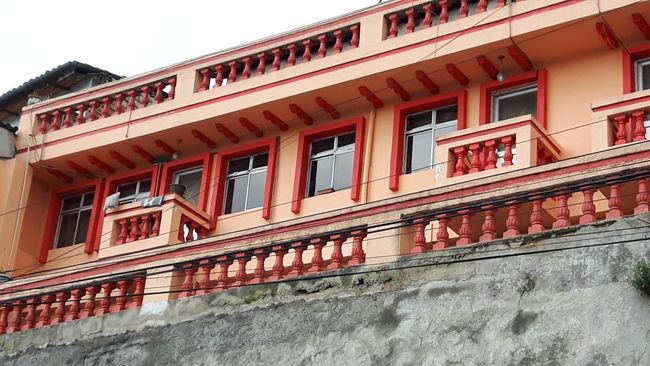
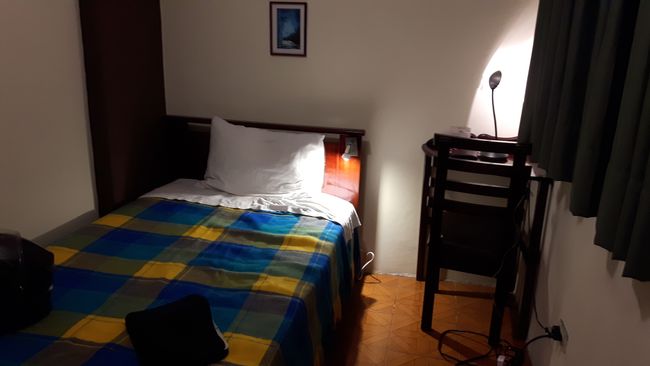
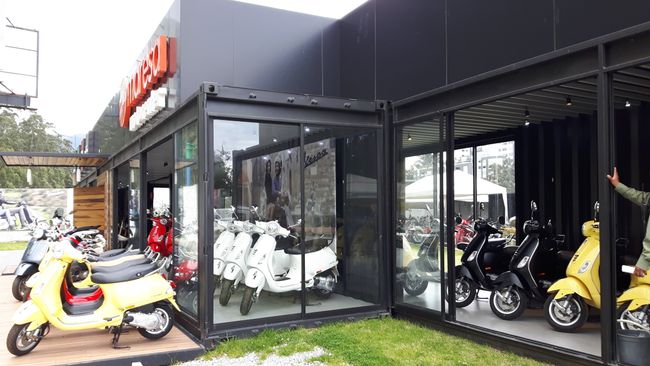
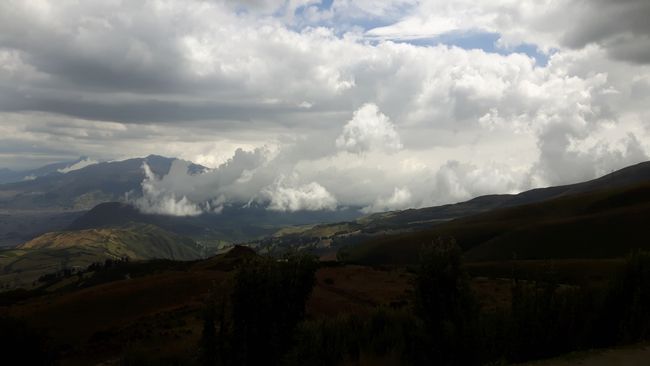
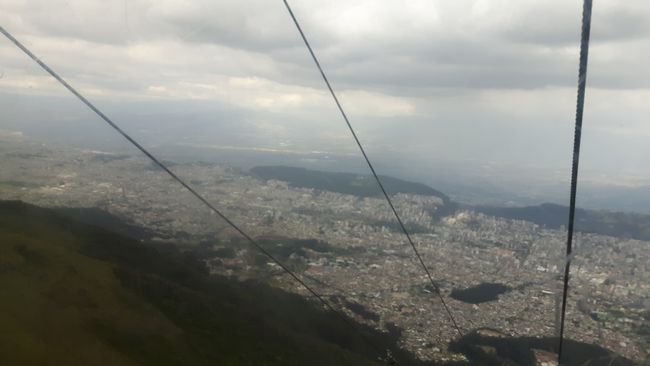
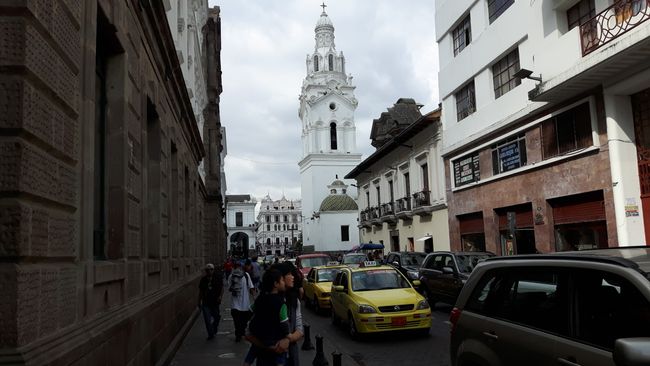
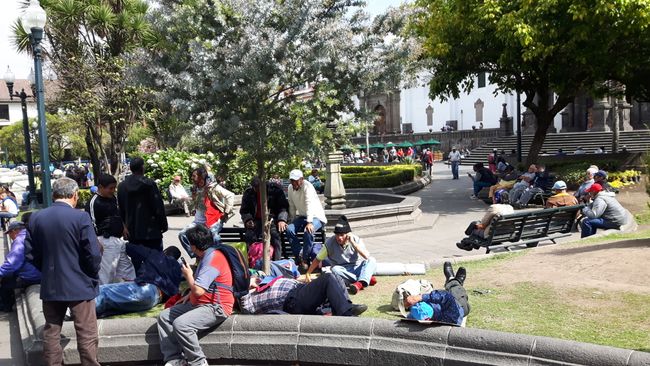
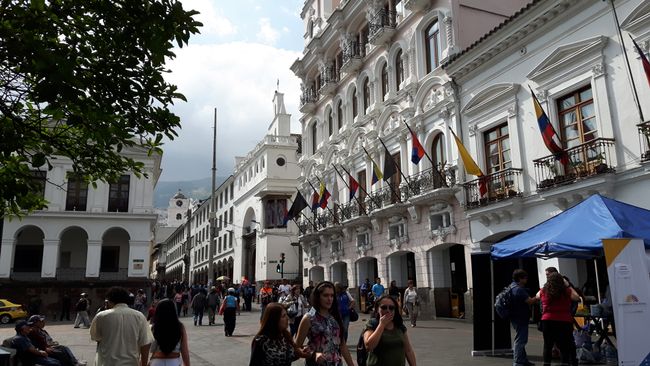
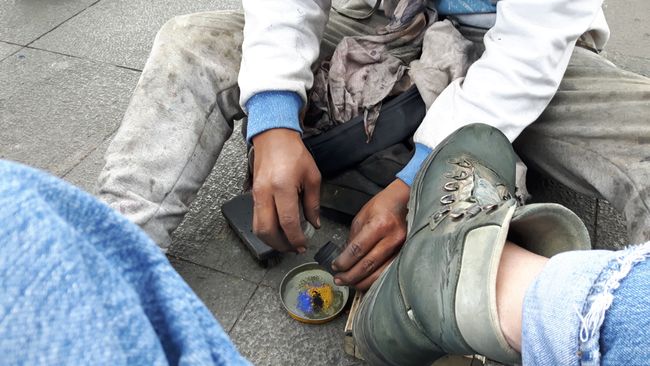
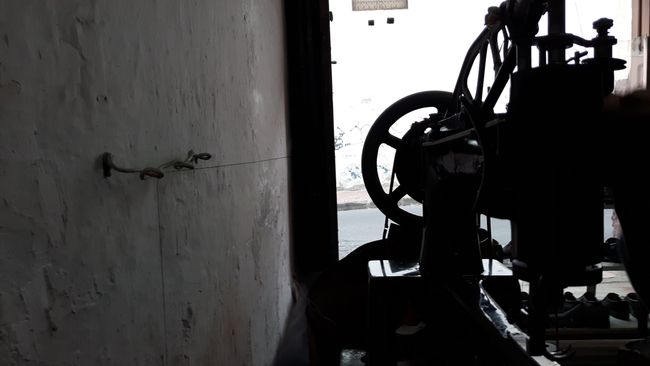
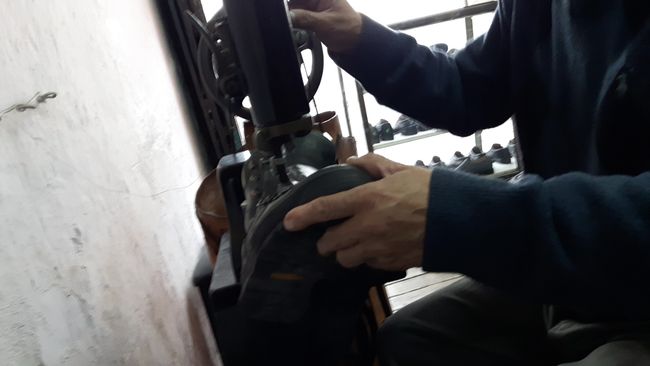
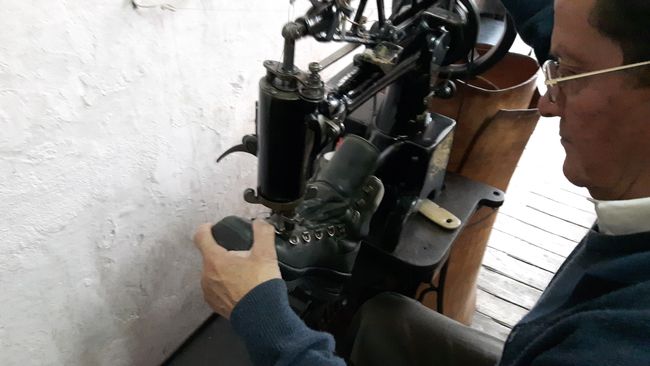
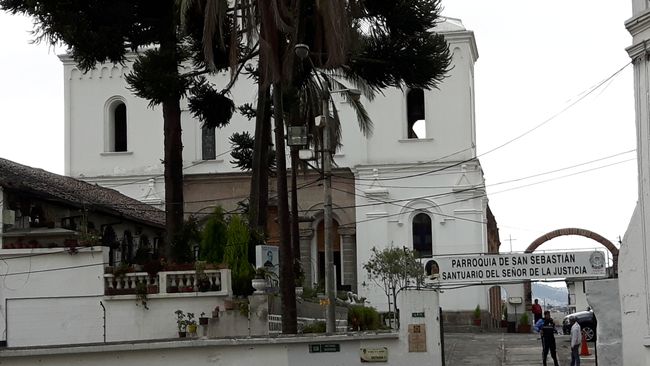
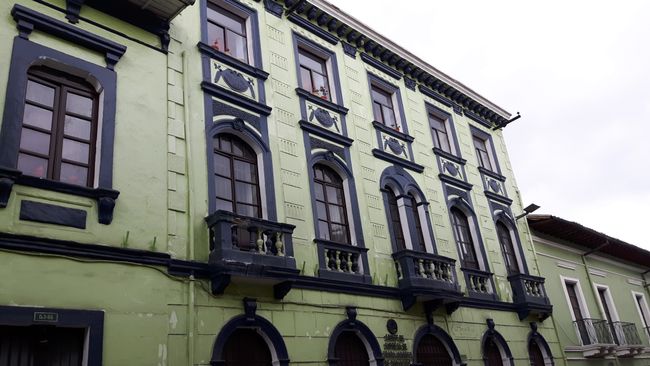
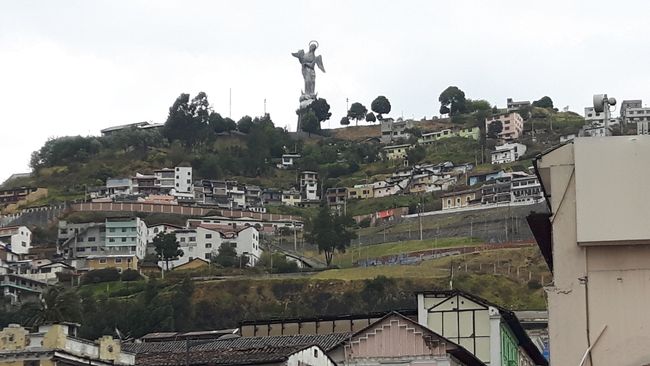
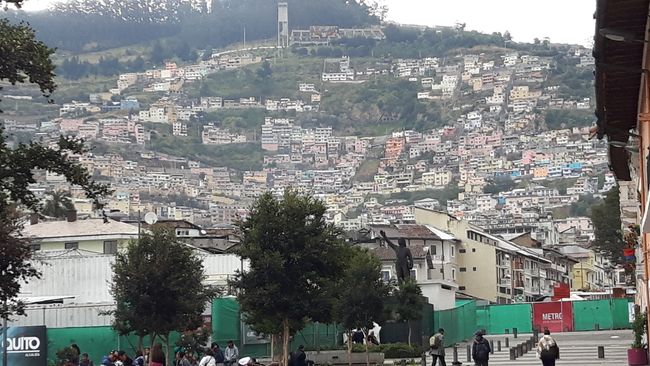
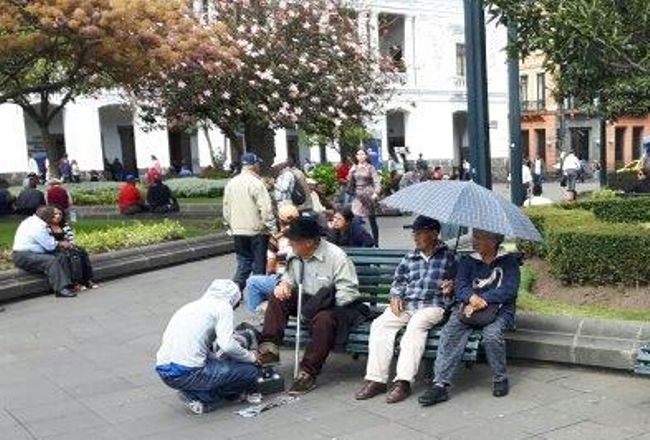
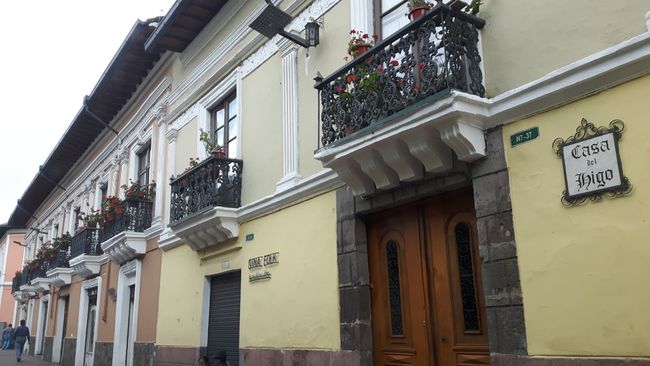
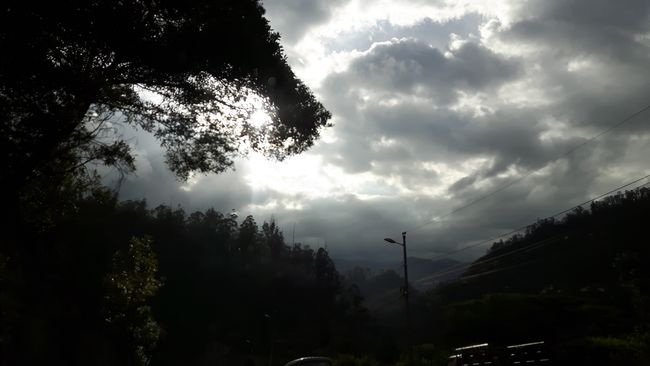
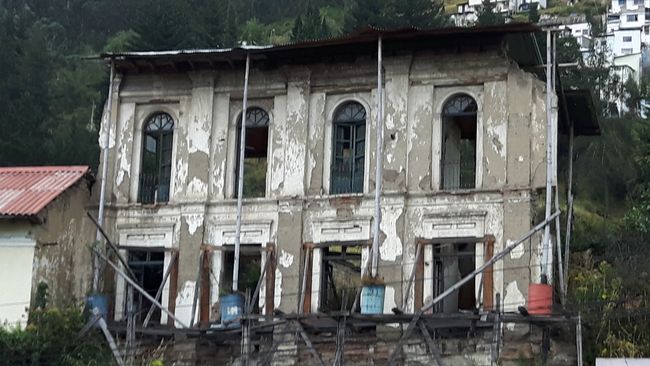
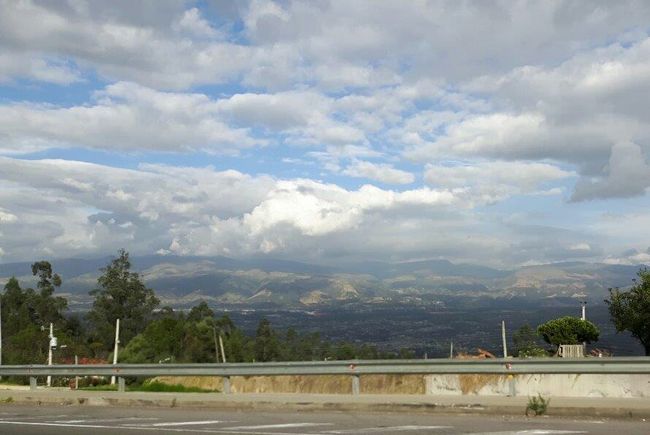
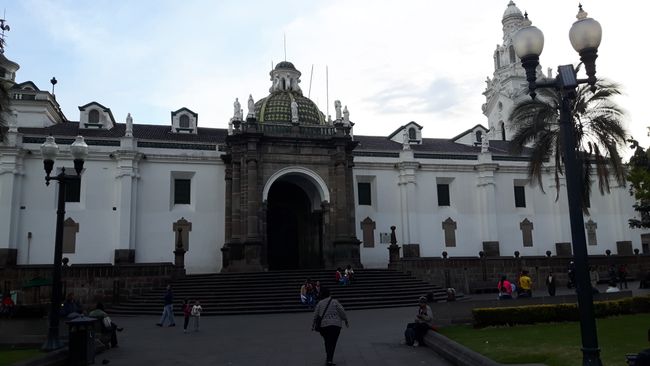
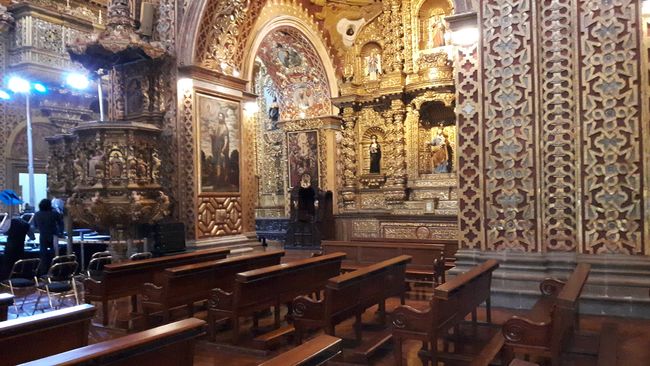
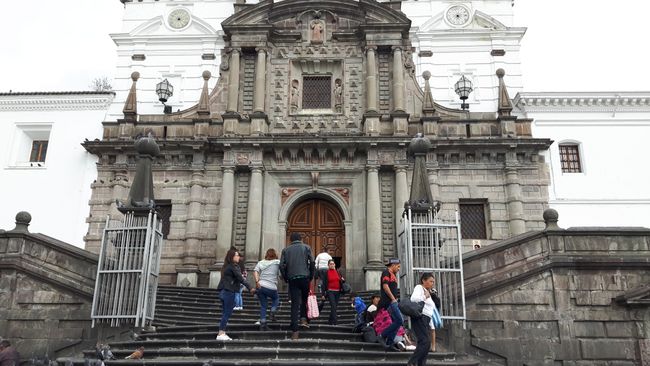
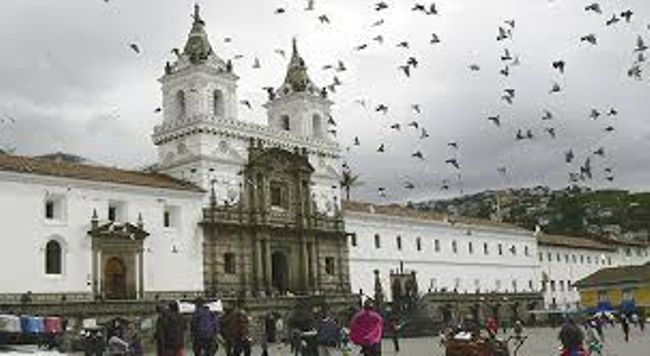
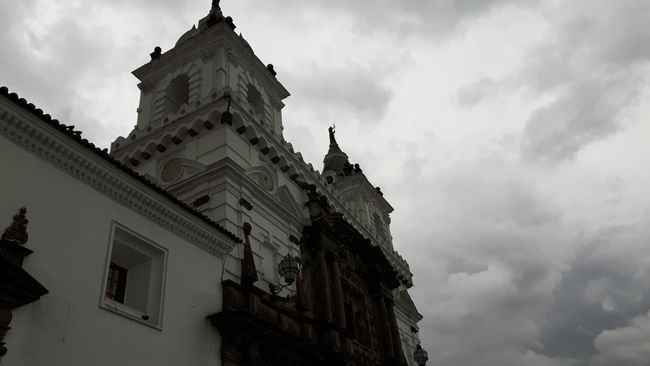
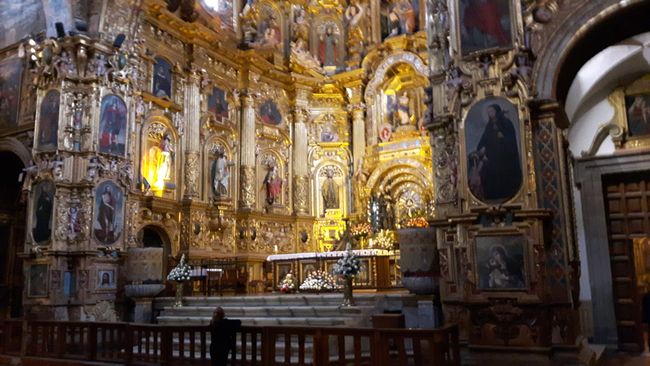
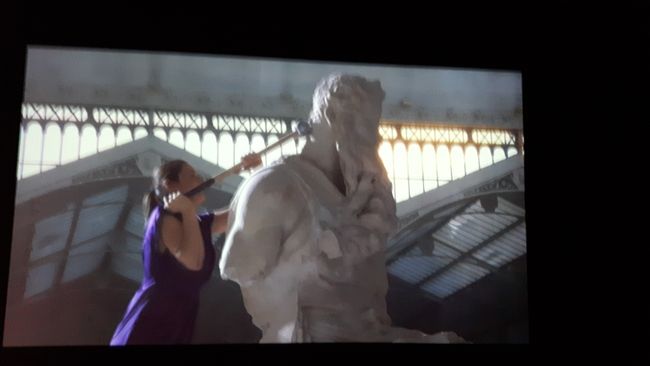
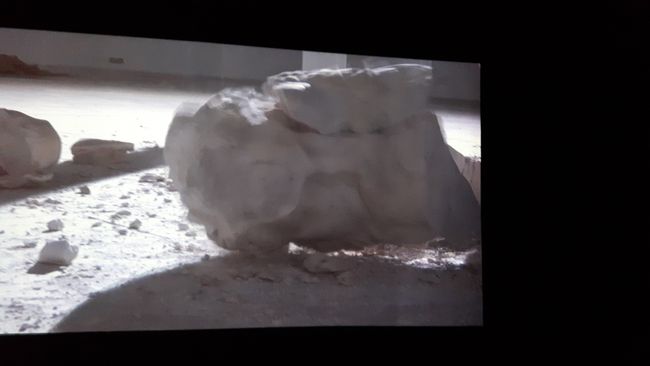
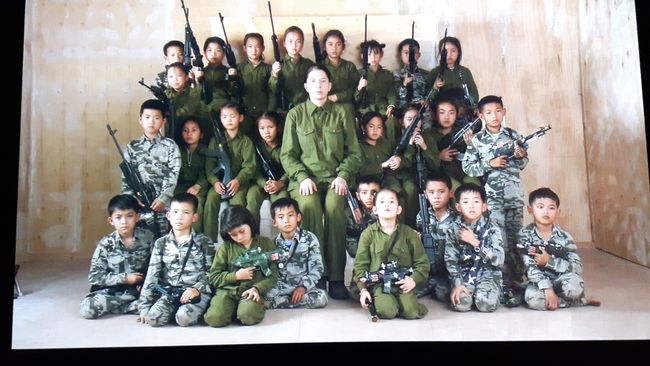
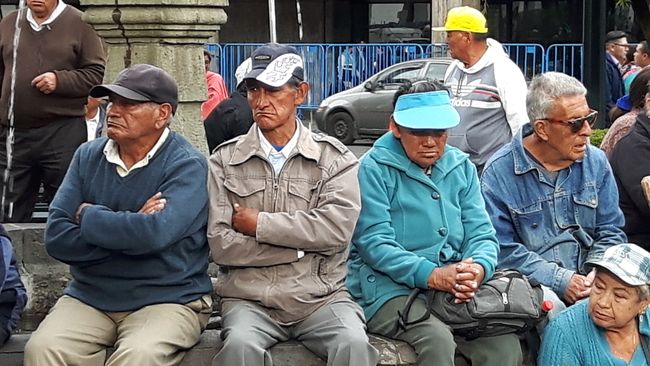
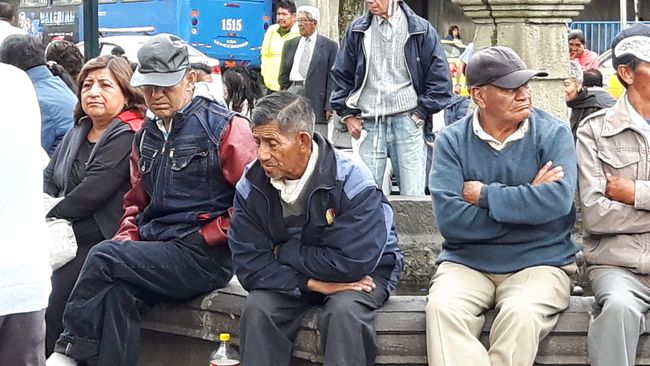
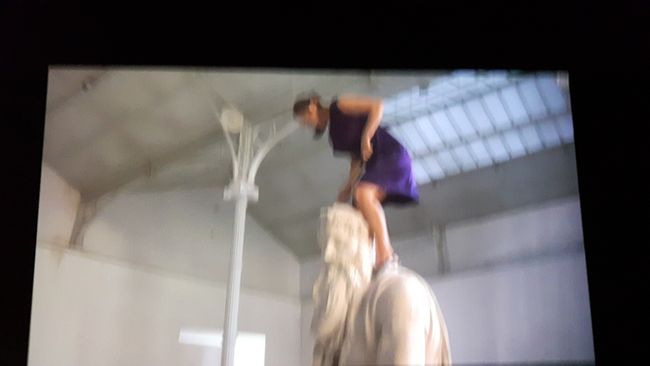
Kyerɛw wo din wɔ Newsletter no mu
10.09.
Sunday, 06:45 a.m.
The storm is raging outside - no change from last night. I skillfully ignore it and wonder during my second attempt to fall asleep if there is no Sunday here. The people here must also pause and catch their breath at some point.
After waking up for the second time, I quickly fight my way to the supermarket and enjoy my breakfast from the tin cup in my prison cell, which has just allowed me a walk outside.
Before I leave, I have a phone call with Karin and later with the birthday boy. It's been 22 years. I catch him eating kebab, he just returned from exercising and is hanging out with a friend. But we still talk briefly. He kept his birthday a secret from his colleagues because it was too much hassle. I wonder if his two roommates don't know the date either? But Tillmann doesn't seem abandoned or sad. Gabi and Rainald will come in 14 days and then the birthday will be celebrated. A good consolation.
At half past 11, I am on the Vepse, but not before observing a study of the environment.
I arrive at the square where the Vepse is parked. On the side is a car selling fish, on the square itself, where a residential building is also located, sits a young mother with red-painted fingernails and her smartphone in her hand. She has 3 children, who frolic around her like young dogs. The TV is playing in the house, and only the youngest of the three still has enough imagination to start and land his toy helicopter.
The mother is only interested in her smartphone. Man, oh man, I think to myself and would love to snatch the device out of her hands and throw it into the fish remains bin. She has plenty of time - at least today, for red fingernails, for her phone, and for junk food from the corner - judging by her figure. Not for the children who are still at an age where they need demand and support. It's such a shame how potential is wasted here. I make sure to get away from here. Not a good city or as Nora would say, 'no good vibrations!'
Today is the day. Quito is located 2,850 meters high in a basin. That means that about 3,000 meters of altitude await me. In El Carmen, it is oppressive and warm. Today is the first time I am riding without a jacket. Not necessarily recommended, as mosquitoes and other insects certainly like to get caught in the armpits and sting. But temperatures change quickly. A sustainable jolt reminds me of the necessary jet replacement. Just at the right time, because in front of me, a large unpaved parking bay opens up. Finally, the Vepse is stable, and suddenly I see with horror that the rear wheel is standing in a pile of shards. Oh no - and then I hear a faint hissing, but I can't locate it. The noise around me is even louder than El Carmen. Puffing trucks ascend the intimidating slope, buses thump behind them, motorcycles with sawed-off or defective exhausts chase after them, a workshop about 20m beside me is also drilling, hammering, and flexing. Where is the hissing coming from? There are actually 5 seconds where I hear nothing except the birds of prey circling above me. Doesn't matter! I'm ignoring that now and changing the jet. The moves are right, the jet is changed, I free the rear wheel from the remains of the shards, hoping that none are hiding in the tire. I slowly start off, but don't notice any swaying and breathe a sigh of relief.
The Vepse tackles the mountains not with ease, but quickly enough. It drizzles, it gets cold, and the first mist rises from the valleys. The mountains are covered in tall fir trees and the slopes look freshly mowed. I could be back in Austria.
The hairpin turns are damn sharp and have a serious steepness. We're making good progress. The trucks and buses are hanging on the mountain, my companions are motorcycles and cars.
Then I see a sign: Quito 50 km - my navigation says 80. Maybe I took a different road? But it would have corrected that... I stop at a restaurant shortly before a heavy shower starts pouring from the sky. The restaurant is the opposite of yesterday, and when I'm done, the sun is shining. I only have 38 km left. I took a chance and chose a hostel on iOverlander. Getting into the city works well. There are still steep inclines, but not as bad as in Cusco. And then I'm already here. In a quiet neighborhood, barely any traffic, streets lined with trees, and two-story houses. Houses, not blocks. Houses with front gardens - it seems I have landed in a good area here. But even when entering the city, I haven't seen any favelas, only high-rise buildings built into the mountain slopes.
The hostel is called Jhomana Hostel and is also located in a beautiful house. Tastefully furnished, polished wooden floors, pictures on the walls, a glass display case set into the wall with ancient clay figures, a small table with a red lampshade, a reading room with two fully stocked bookshelves and a leather sofa, and well-kept balcony plants everywhere.
The initial price is $37, we meet at $20 with the agreement that I will stay for 4 nights. Breakfast included. El Carmen is forgotten.

I should have also taken a photo of the cell in El Carmen
11.09.
Today is all about the Vepse. Since I assume that there is no Vespa representation in Brazil, I feel safer if the drive belt is replaced here. Fortunately, there is not only a Vespa dealer in Guayaquil, but also here in Quito with a spare parts warehouse and workshop.
The way to Avenida Simon Bolivar in the north of Quito is a bit arduous. The city center, due to the basin location, has a width of only 2 to 3 km. Steep streets on the left and right with a gradient of 10 degrees lead to commercial and residential areas. The city has two to three million inhabitants.
Today, 3 hours of sunshine are predicted, no fog, no rain. The temperatures are such that I can only ride in a t-shirt. Avenida Simon Bolivar turns out to be a four-lane city highway. In my imagination, it was a small street in the commercial area. None of that. I find it very quickly, but nowhere the workshop. Instead, I am led from Bolivar to another autopista that allows me to change directions because of the missing median barrier. When I have it again, I ask and my hopes rise that I will find it. And then I see a large sign with many Vespas and the business premises underneath.
The result: the Vepse stays there, the drive belt is in stock and will be installed, the cover for the coolant tank will arrive tomorrow, the fuel pump and starter will be dismantled and cleaned.
I can pick it up tomorrow at 5:00 p.m.
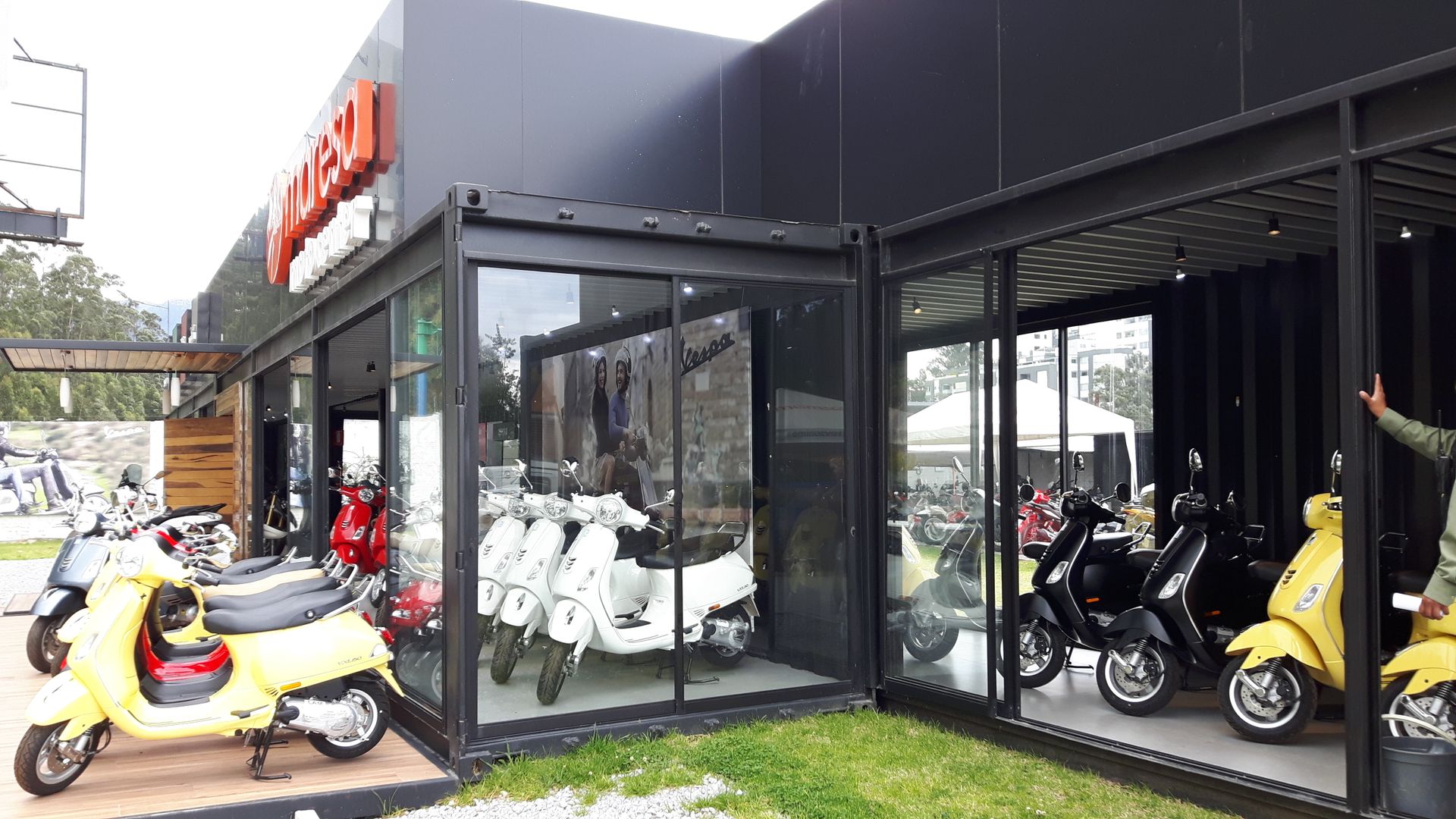
The spare parts warehouse is well stocked.
12.09.
Well, that was a mistake...
At 5:00 p.m., I am at the Vespa workshop, I pay the bill, and the mechanic receives a generous tip on top. -
And then comes the moment of disillusionment. I already notice when driving away from the Vespa grounds that it doesn't pull properly, but I blame it on the altitude and drive onto the highway. But it has nothing to do with the altitude - the acceleration is a real catastrophe - the Vepse can't get moving. 'Immediately back to the workshop!' is my first thought, but I still remember the cloverleaf rides on the various highways from yesterday.
It's rush hour, it will be dark in an hour, but I dare anyway. At the next roundabout, I position myself on the wrong side, and then I see for the first time that there is also an Avenida Simon Bolivar Sur and Norte. I choose Norte and I did it right.
The mechanic is already off work, I only meet a salesman, and he bears the brunt of my frustration. I suspect that the cause of the power loss that wouldn't take me up a single mountain - let alone the four thousanders - are the rollers that he replaced (by the way, I learned that from Wilfried).
There was no order for that. So the Vepse will spend a second night there, and I can pick it up tomorrow at 10:00 a.m. The taxi driver who takes me to my hostel later asks for a voucher. This question gives me the idea to claim money back tomorrow. Taxi fares and for another night's stay.
The taxi driver tells me that he earns $10 a day. For this, he has to prove 200 km. Hard-earned money. He tells me about the currency conversion 17 years ago and the inflation that reminds me of Germany. Here, too, there were enormous price increases within a few hours. He is glad that there is the dollar and the government cannot influence it.
I start the day with a gondola ride to the local mountain, which is 4,000 meters high and offers an impressive view of Quito. From up here, the geographical location is very clear, as well as the volcanoes in which the basin is embedded. Although the sky is not clear, the snow-covered peaks can only be seen with a lot of imagination, but there are enormous cloud formations. The altitude affects me again, but by no means as bad as the first time. Even here 'in the valley', the 2,850 m pass by me without any effect.

Enclosed by volcanoes in the basin
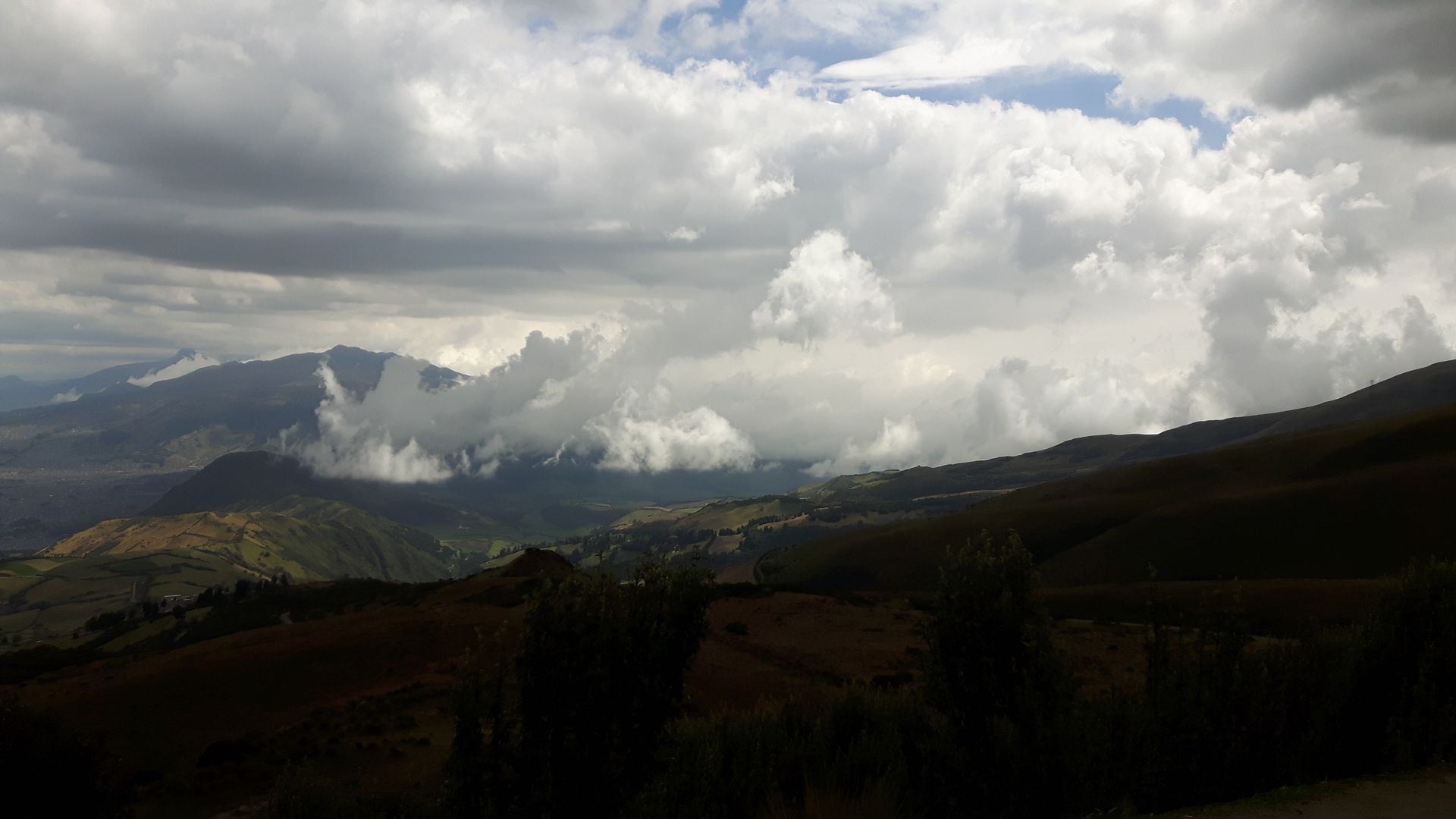
Only a few tourists want to go up here, and I enjoy it all the more.
I don't have to be at the workshop for another three hours, so I have a taxi take me to the historic center and drop me off at the Plaza de la Independencia.
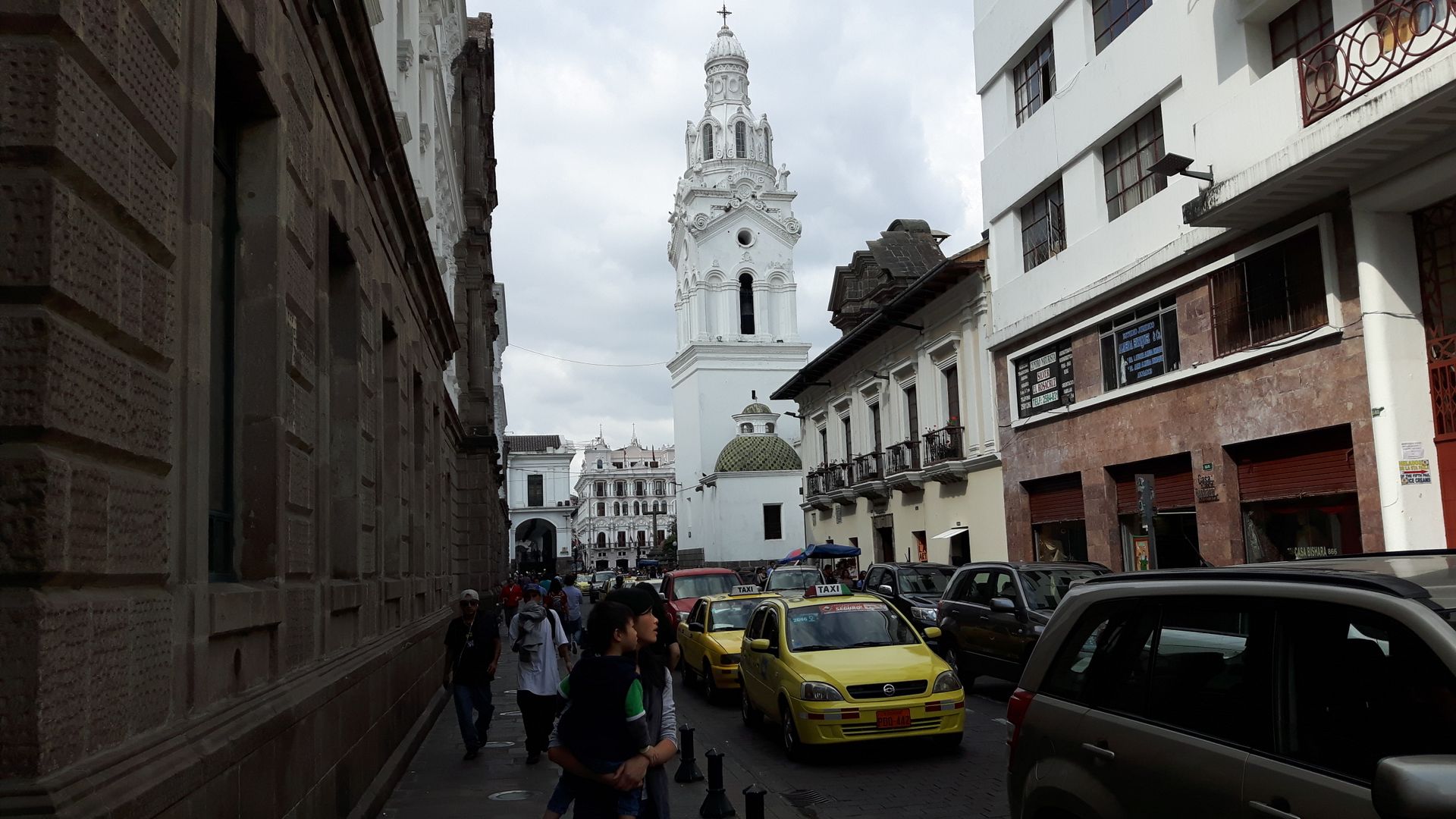
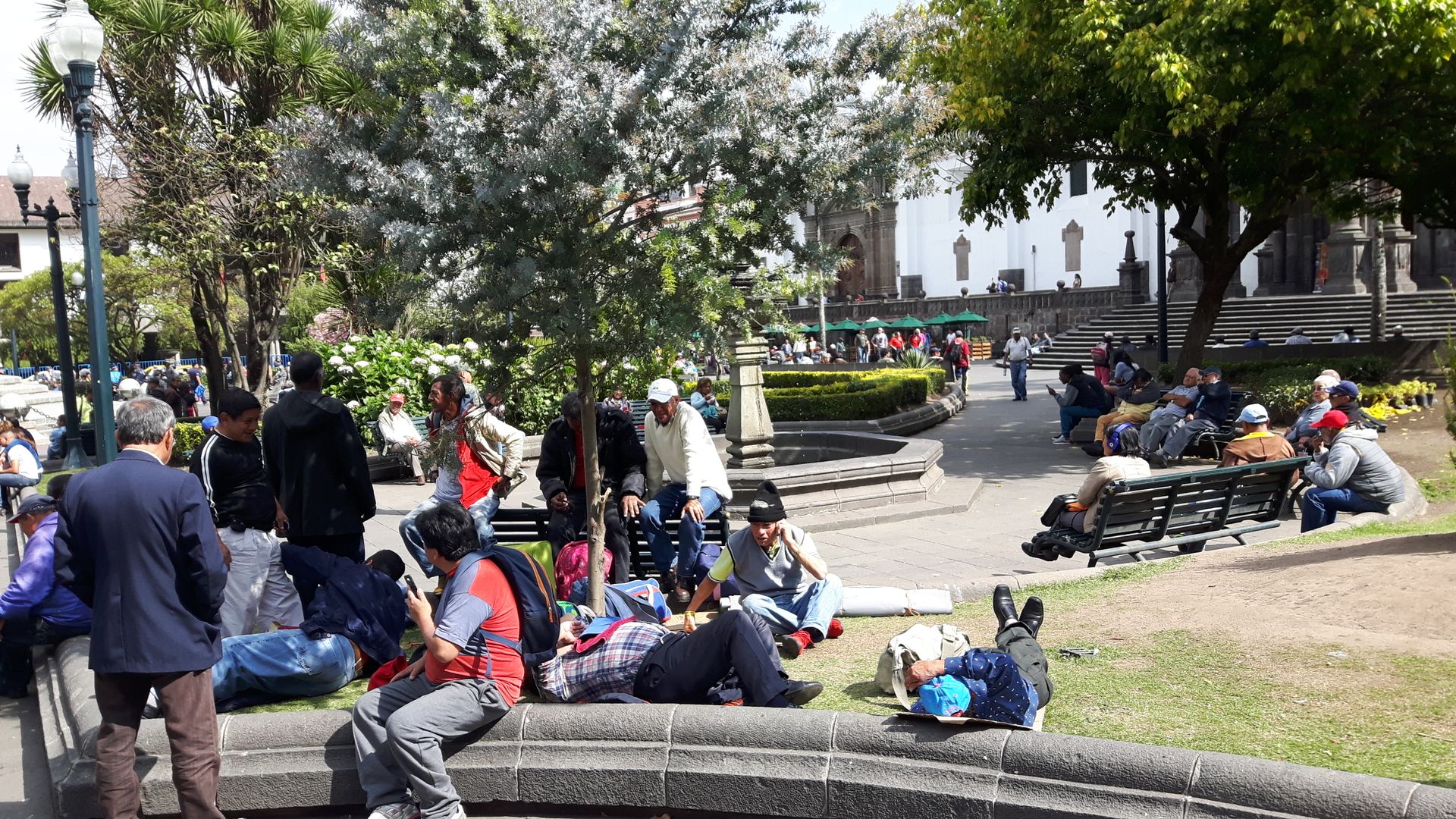
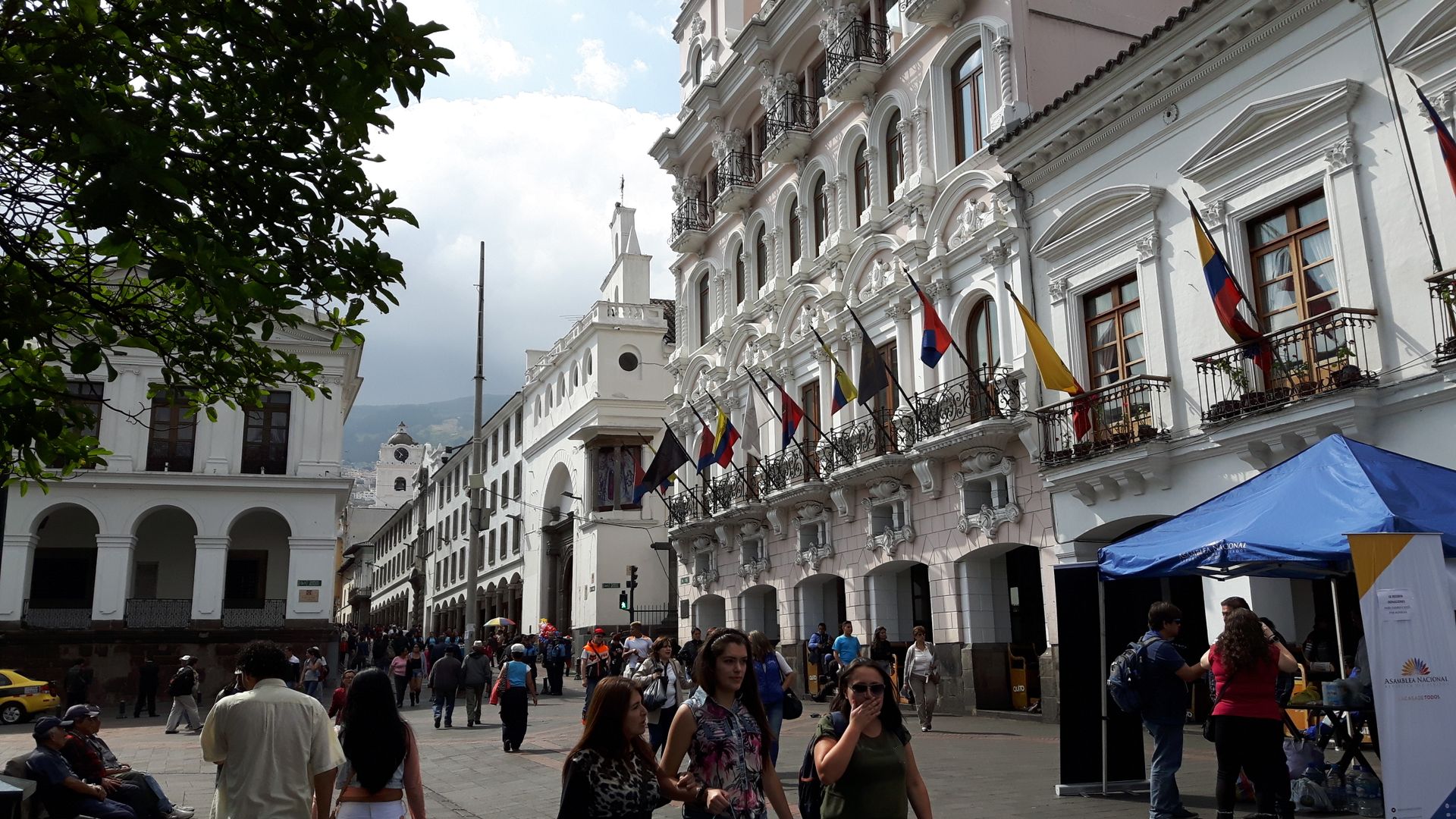

I sit down on a park bench and watch life pass by. The educated citizen wouldn't have allowed themselves such peace and would have admired all the sights - but I felt like pausing again and observing life. What I didn't expect was that I was also being observed. By shoe polishers who lower their eyes and then shoot up to their customers like a hawk after a mouse. And before I even have a chance, my right shoe is on a wooden crate. After 6 months of Andean dust and Pacific sand, it is due. In Cusco, I refused. Not anymore, because that brings the shoe shiners revenue, and it wouldn't be fair to always turn them away. And: I don't feel like a millionaire.
He is prepared for all eventualities, for materials and colors. He mixes the right shade of green with various powders and then starts. This is real physical work. His price, and this is probably already a gringo price, is half a dollar.
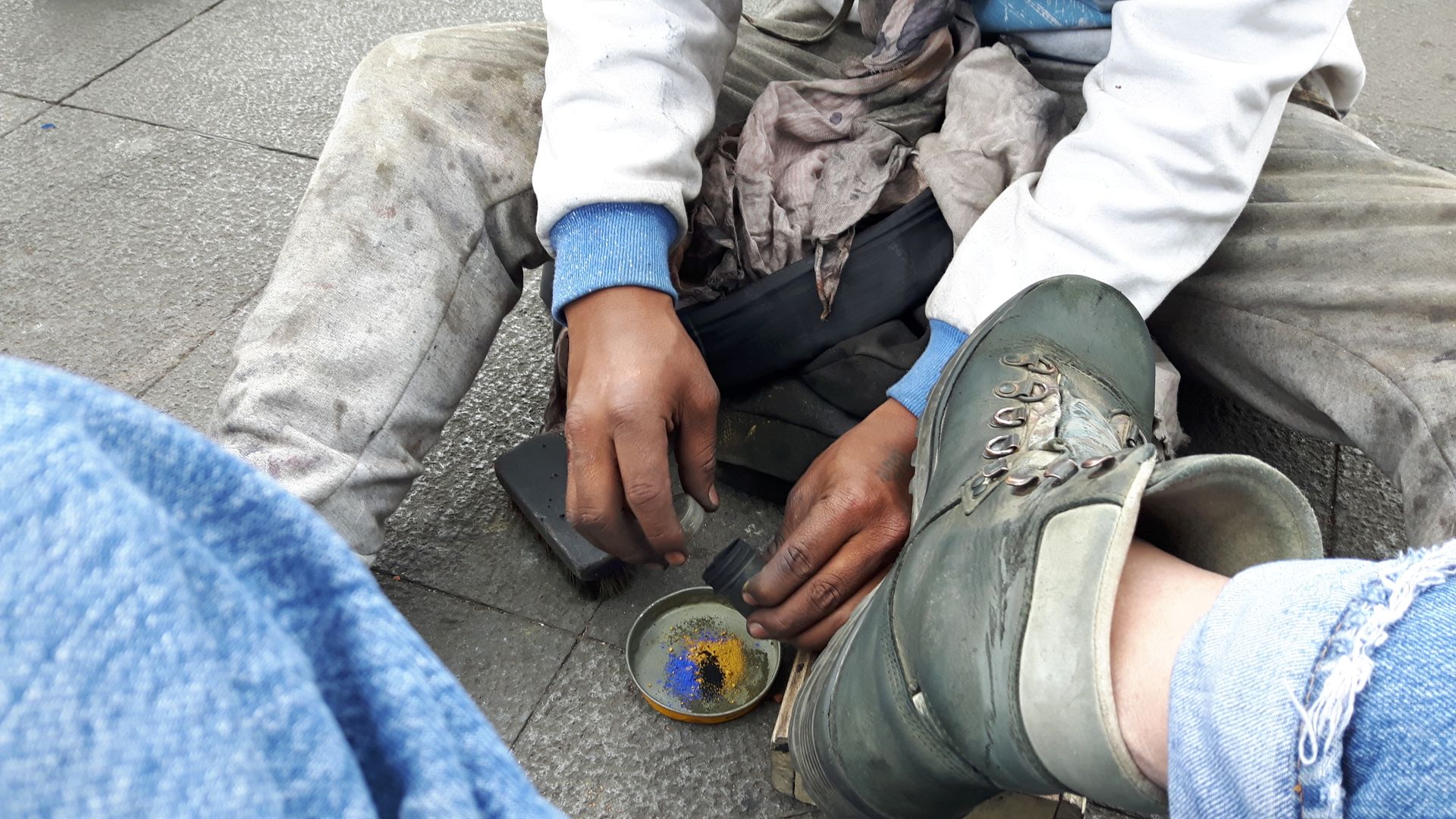
As he earns his money industriously, a policeman sneaks up from behind and asks him how much he charges for shining shoes. Truthfully, he answers, and the policeman goes away.
Unjust world: corruption everywhere, and a shoe shiner cannot determine his own price.
Out of spite and because he has really done physical work, I give him ten times the amount, knowing full well that the next gringo won't get away with only half a dollar. I crumple the bill and hand it over with a closed fist so that the zealous policeman has no reason to interfere.
By now, I am surrounded by his shoe shining colleagues. But I feel safe, I tell my story, they know Germany from football. Then I learn the name of my shoe shiner: Jonas - pronounced Chonas. He laughs when I tell him my name.

No favelas - like every big city in South America, there is also a 'guardian angel' here
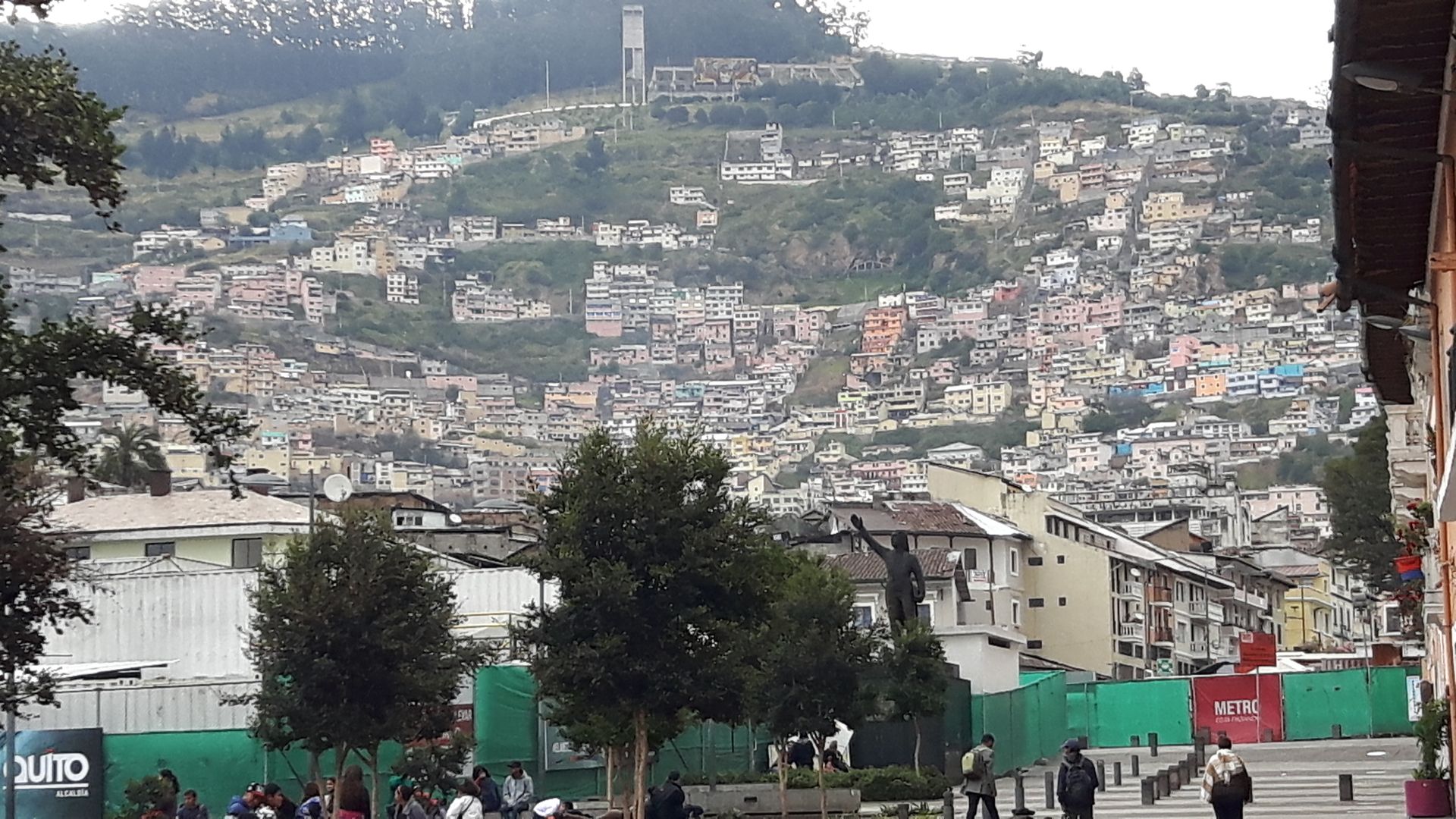
When the shoe shiner packs up his things, I ask him about a cobbler. Four blocks away on the right side. Although it is closed, another one is not taking a siesta. He initially wants to put me off until tomorrow, but then I am allowed to sit down and take off my shoe.


Business is going well, he has another employee and points to a stool on the wall.
I tell him that the cobbler profession is dying out in Germany. He looks at me with incomprehension.
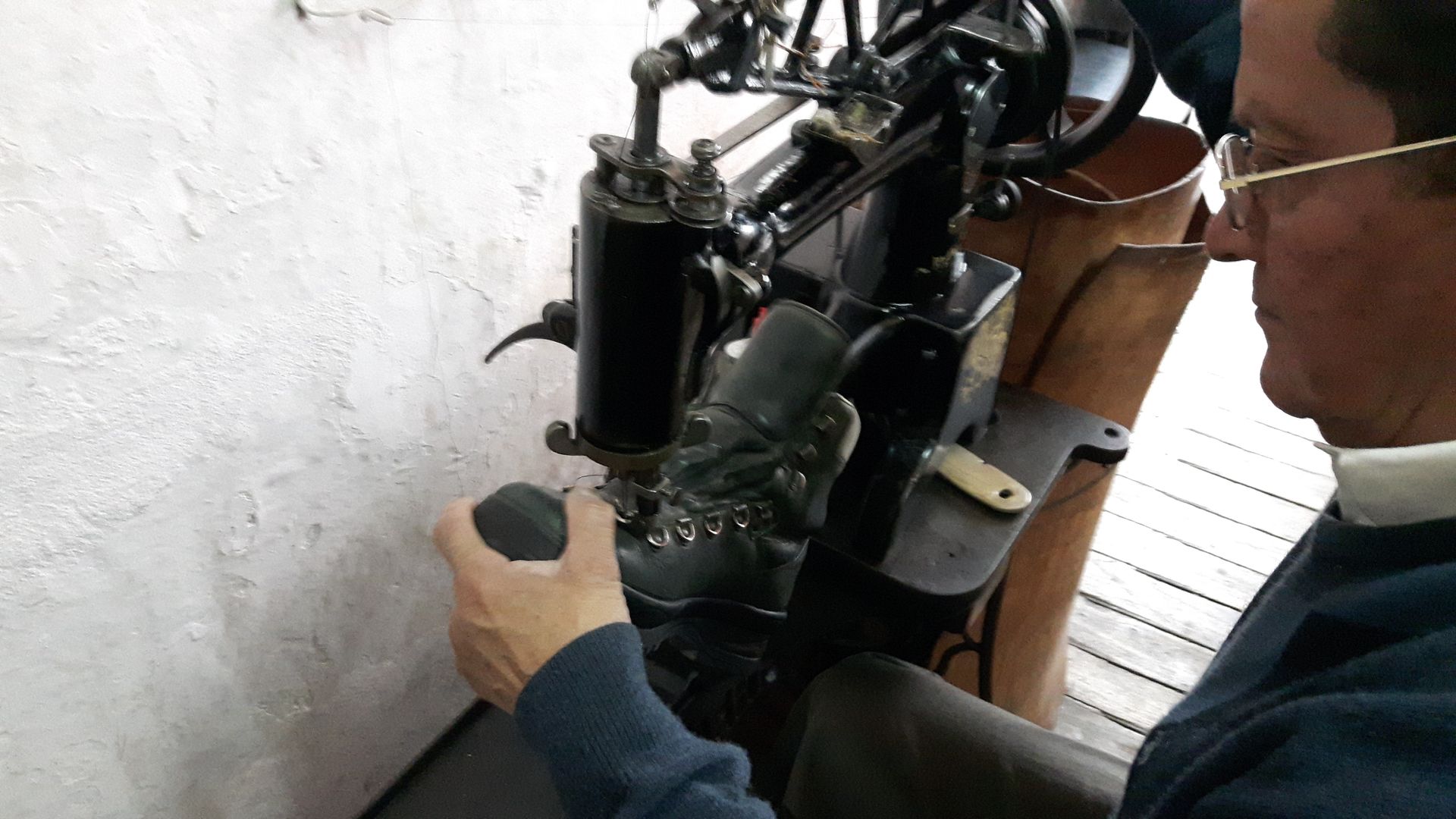
I let myself drift through the old town. There are no more tourists here, this is everyday Quito.
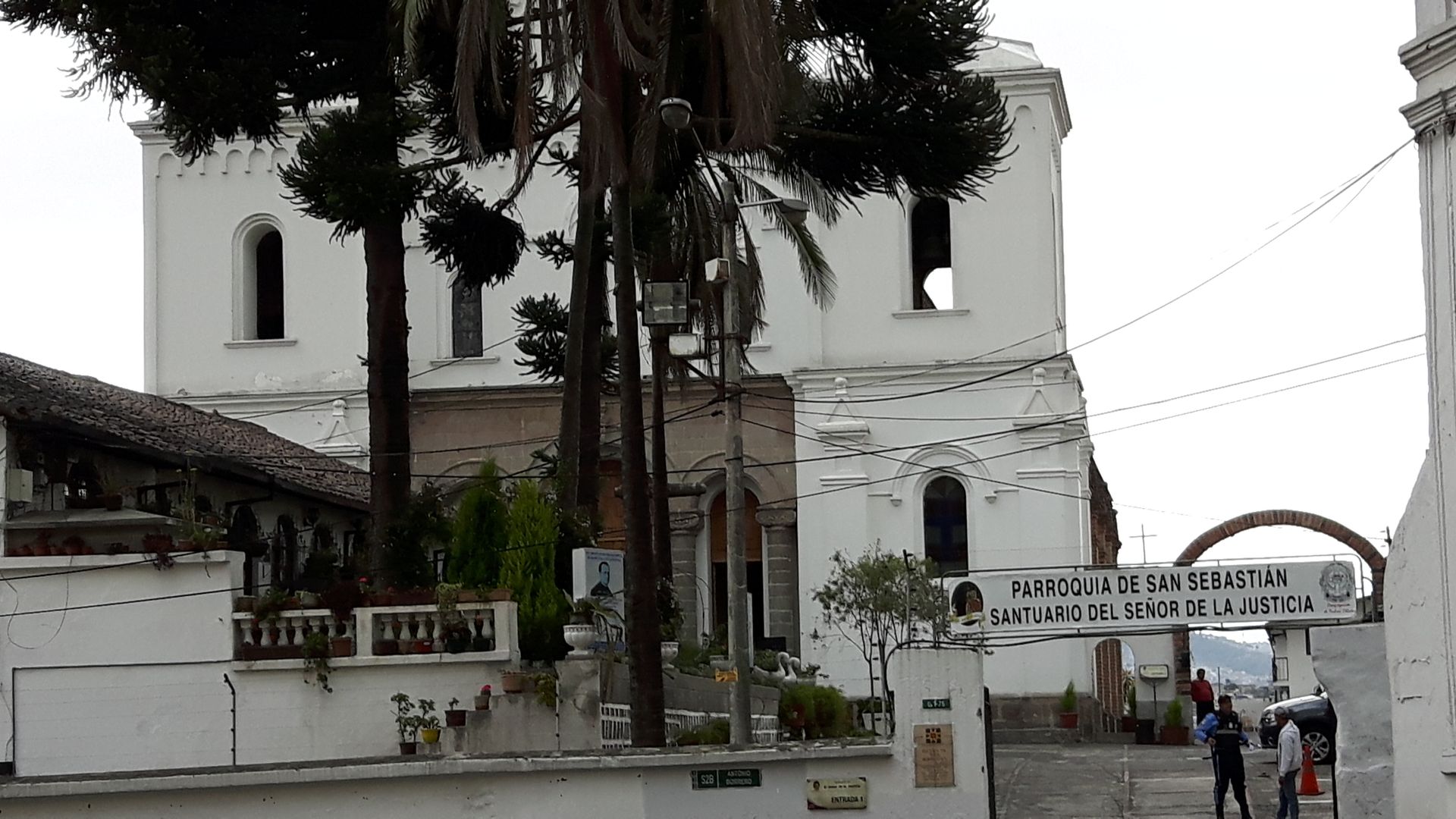


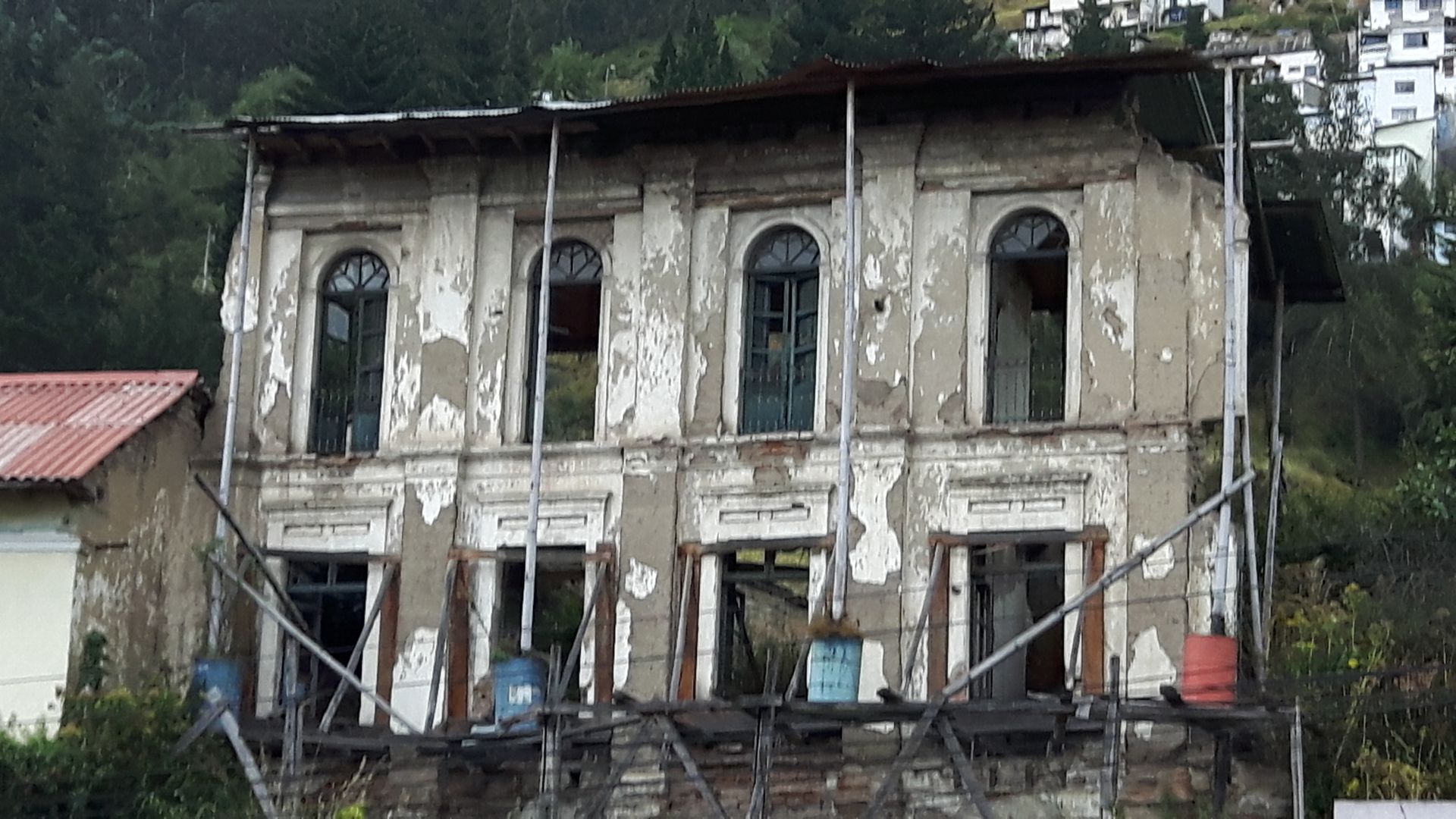

Thanks to the UNESCO World Heritage designation, it is preserved.
Wikipedia writes that Quito was the first city to receive this designation.
It's already half past four. I look for a taxi to take me to the workshop. Along the way, the taxi driver turns off the meter...
The price is accordingly: $20. Yesterday it was $4.
But I enjoyed the ride and took some more photos.

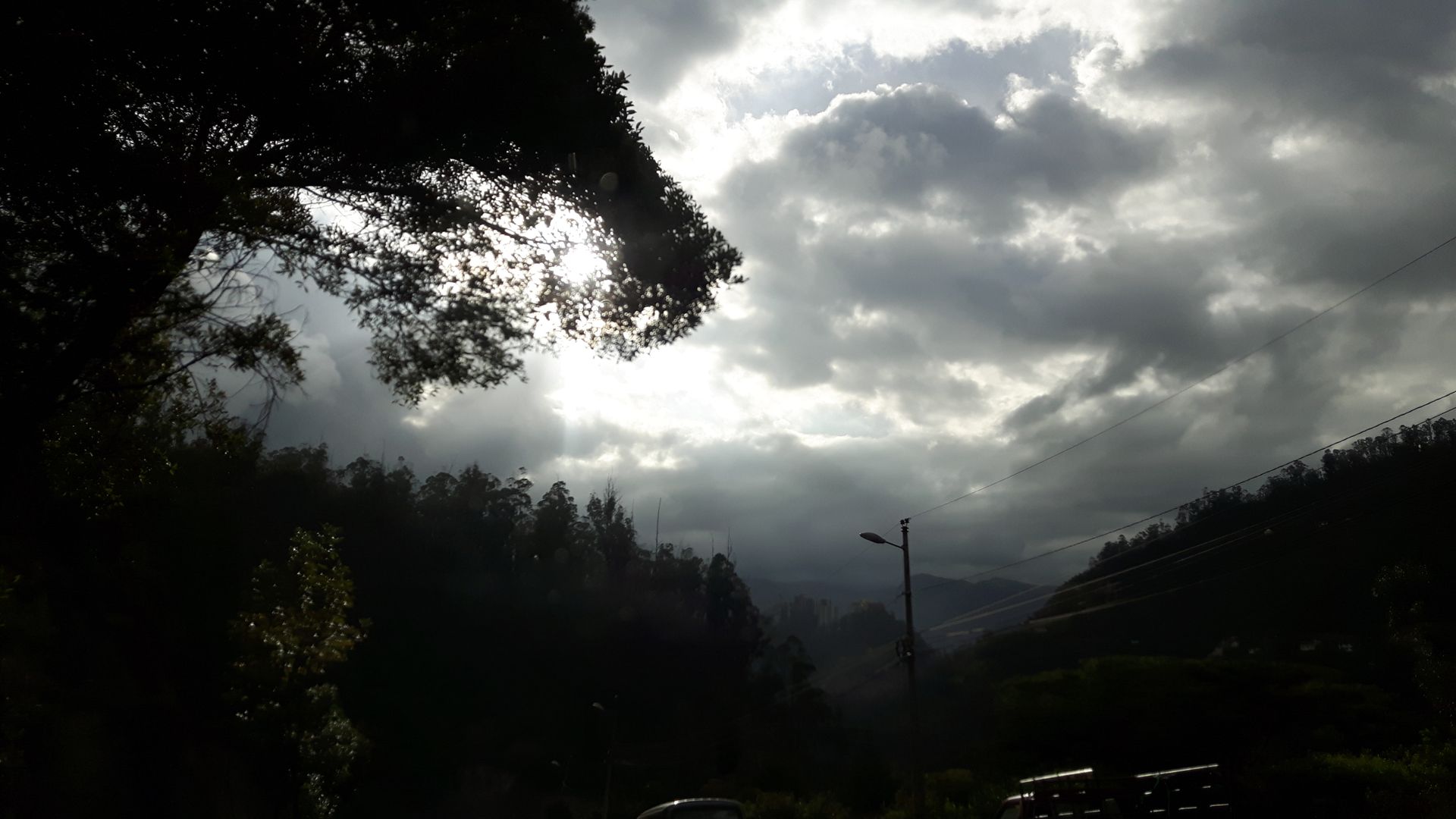
Maybe a hint of what awaits me at the Vespa workshop?
13.09.
Neither the date nor the threatening sky have an influence on my visit to the Vespa workshop. On the contrary - today I am shown almost all the city highways of Quito for only $10 - the taxi driver either wants to quickly fill up his 200 km or - and I believe this - he simply got seriously lost. He has to ask twice. We feel like we're on the road for more than an hour.
The Vepse is waiting for me. My suspicion is confirmed that the mechanic installed the wrong rollers. The test drive went to my satisfaction - tomorrow, when I ride to the equator, I will know for sure. I speak with the sales manager about refunding my expenses. He listens intently but unfortunately cannot help me. I suggest that I discuss it with his boss - who is unfortunately not there...
Alright. I let go of the topic, bring the Vepse through the bustling traffic to the hostel, and don't notice any irregularities along the way.
The hostel offers vegetarian and vegan lunch in its small restaurant. I plunge into the salad buffet and a little later, an Australian hostel guest is placed at my table. He arrived in Quito after a total of 17 hours of flying. He will be working on a farm on the Galapagos Islands.
After lunch, I go in search of a transformer that converts the 110-volt voltage here to 220. Unfortunately, still without success, but I have acquired an adapter that works with all socket systems in the world. What I didn't know was that from Ecuador onwards, allegedly all countries north of here on this continent only have 110-volt voltage.
After that, I have a taxi take me to the old town. I want to at least take a look inside the cathedral. Just because I'm an extranjero (foreigner), I have to pay $5 admission. Photography is strictly prohibited. It only occurs to me later to ask if the admission fee is staggered by nationality.
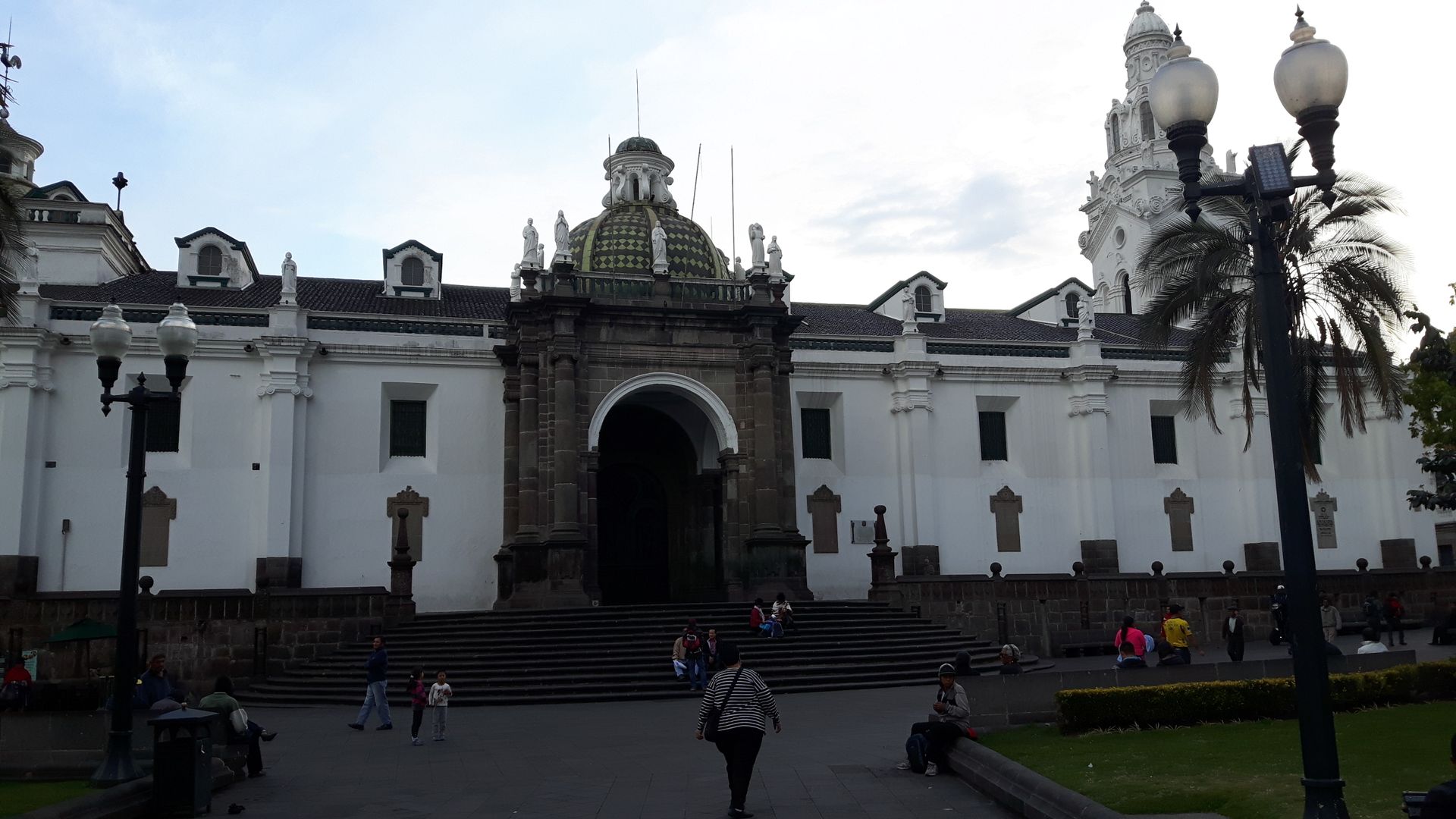

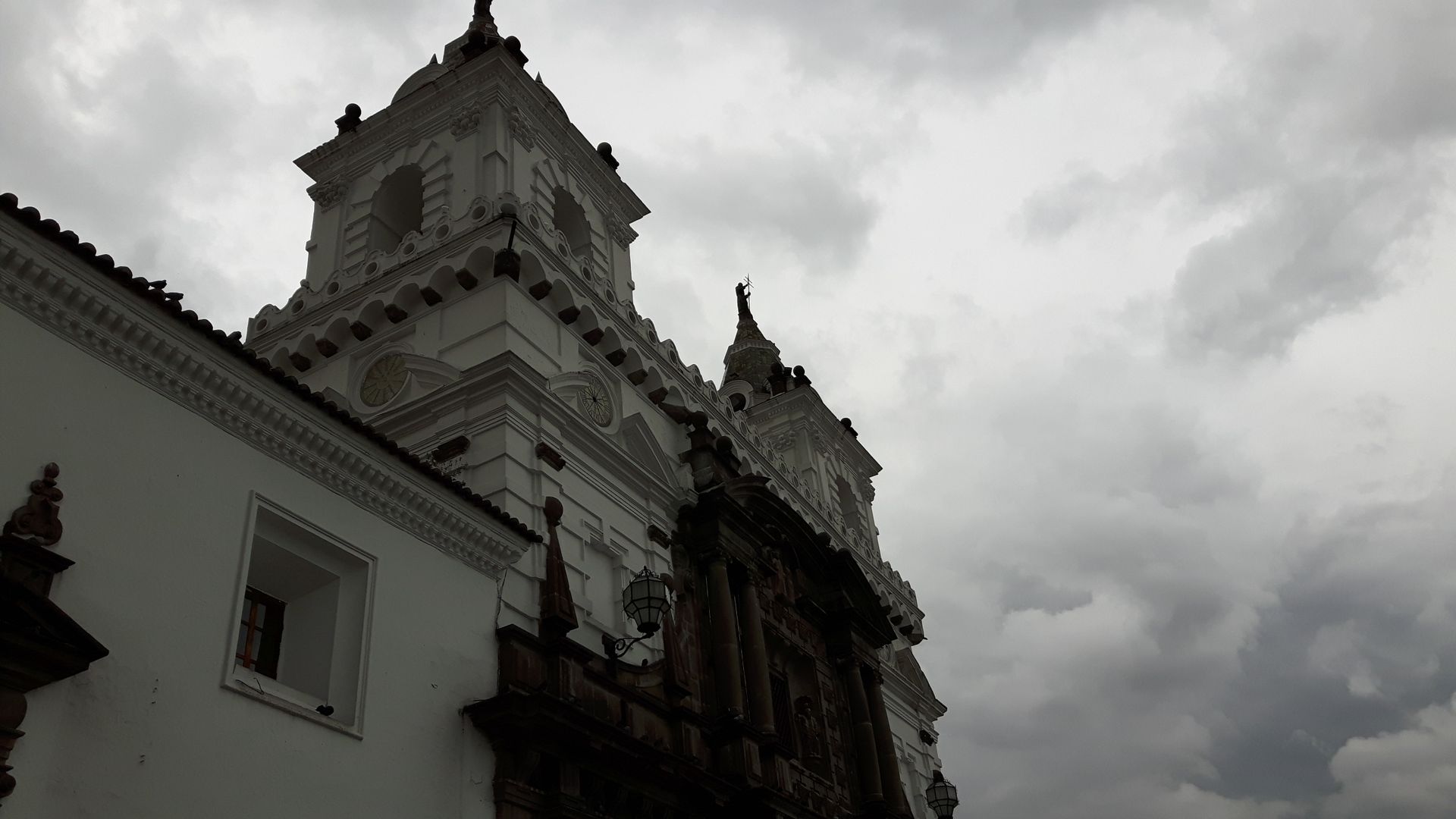
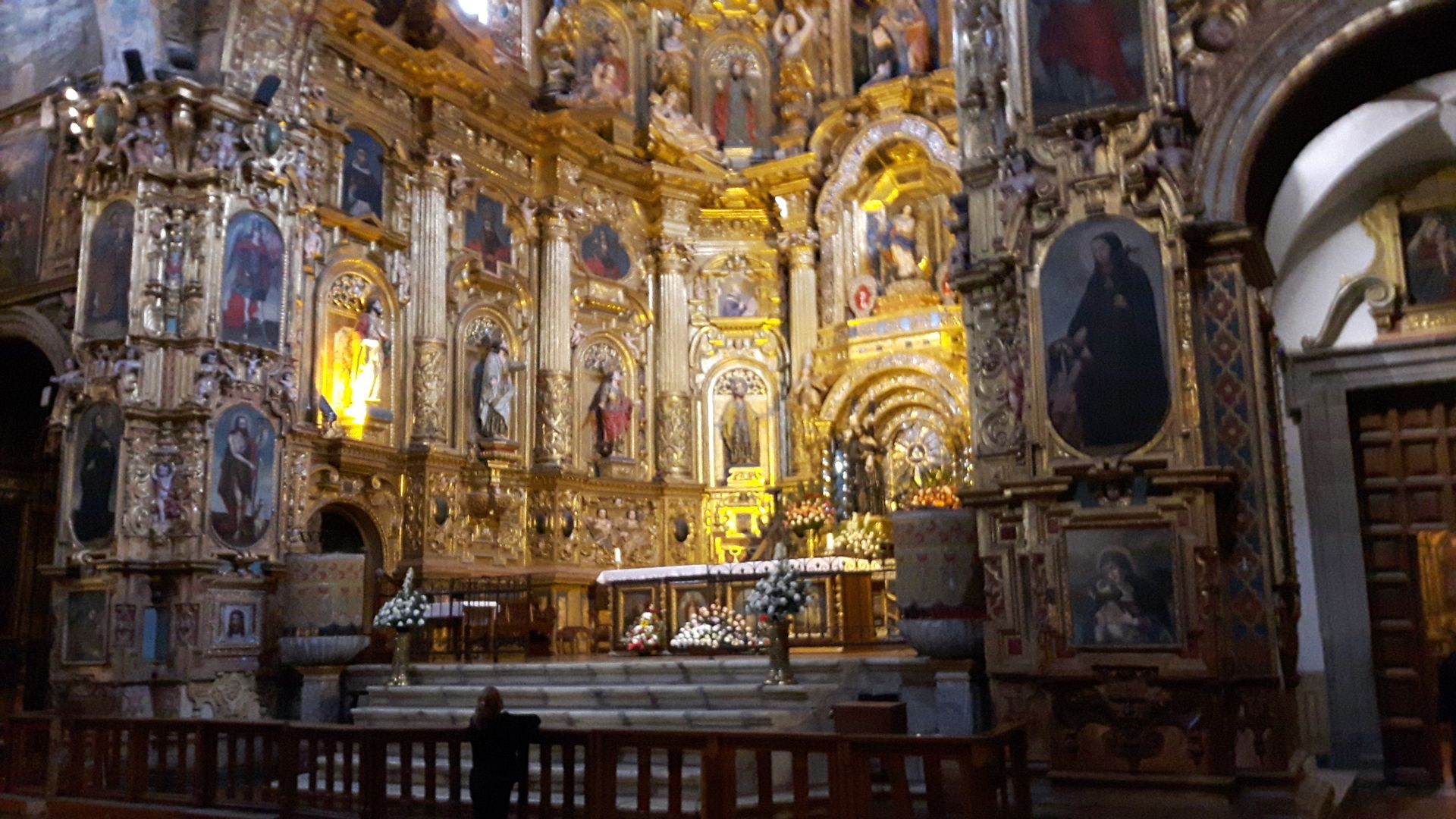
whose interior furnishings only suggest one conclusion: the Franciscan Order has managed finances well...
A little later I am at the Plaza de Independencia again and hear two guitars and singing. An older Ecuadorian is singing sad love songs judging by his voice and expression. He has a good audience that listens attentively and even sings along.
Later, a small woman takes the stage and sings freedom and workers' songs. A bit off-key...


Tomorrow, finally, I'm heading to the middle of the world.
Kyerɛw wo din wɔ Newsletter no mu
Anoyie
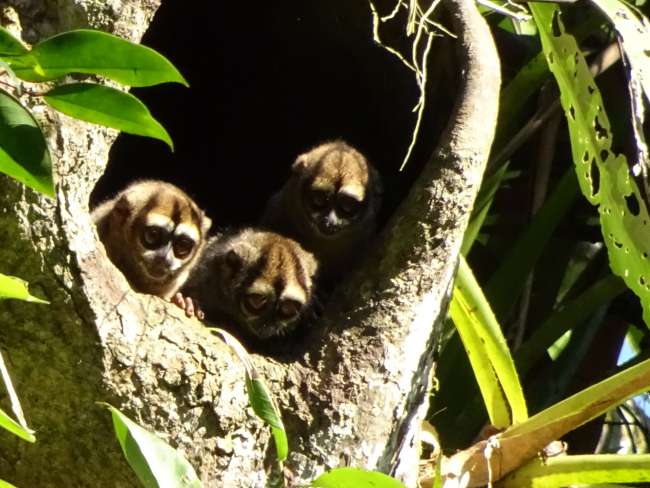
Akwantuo ho amanneɛbɔ Ecuador
